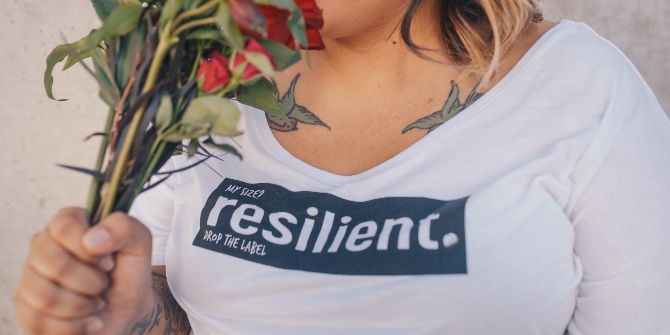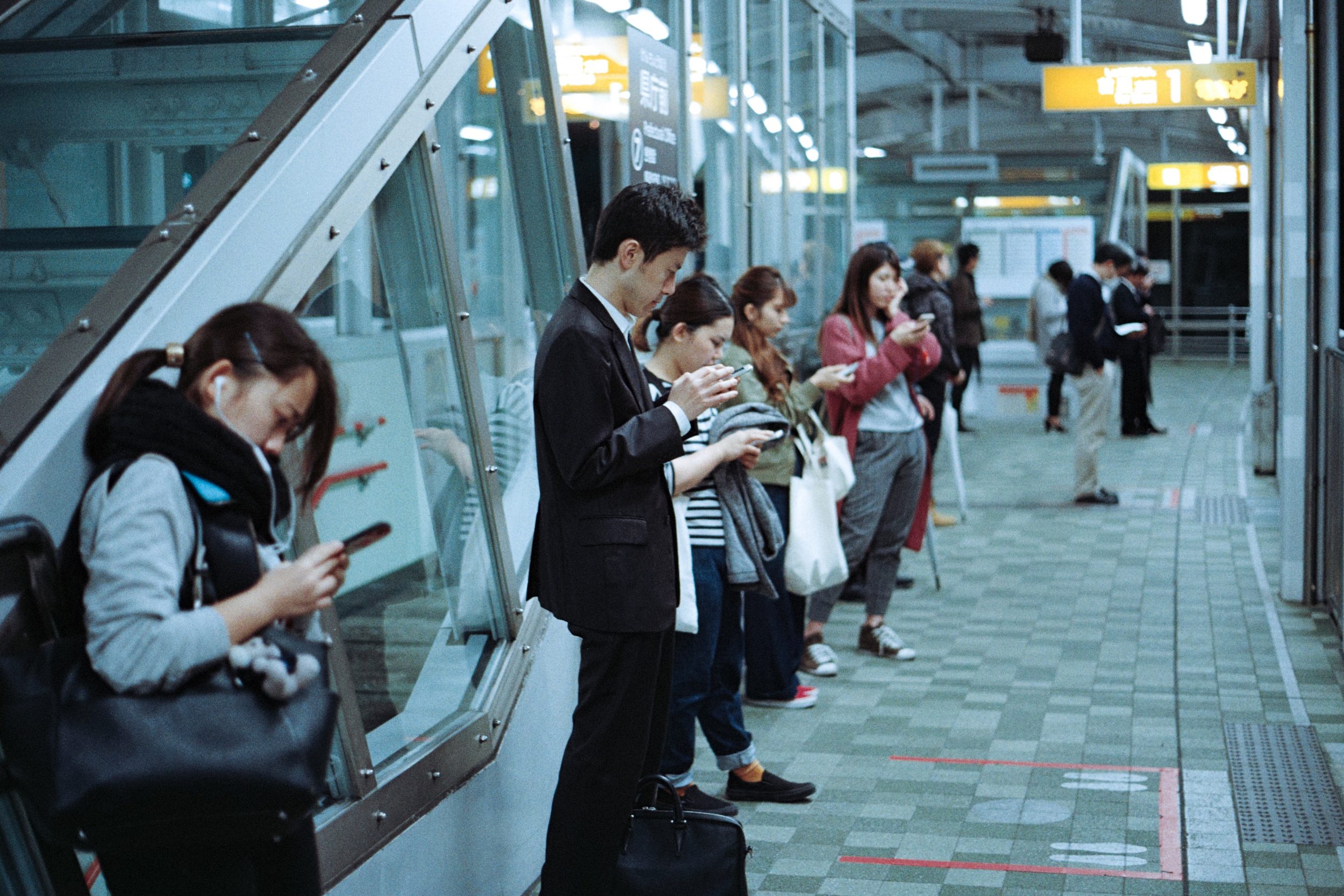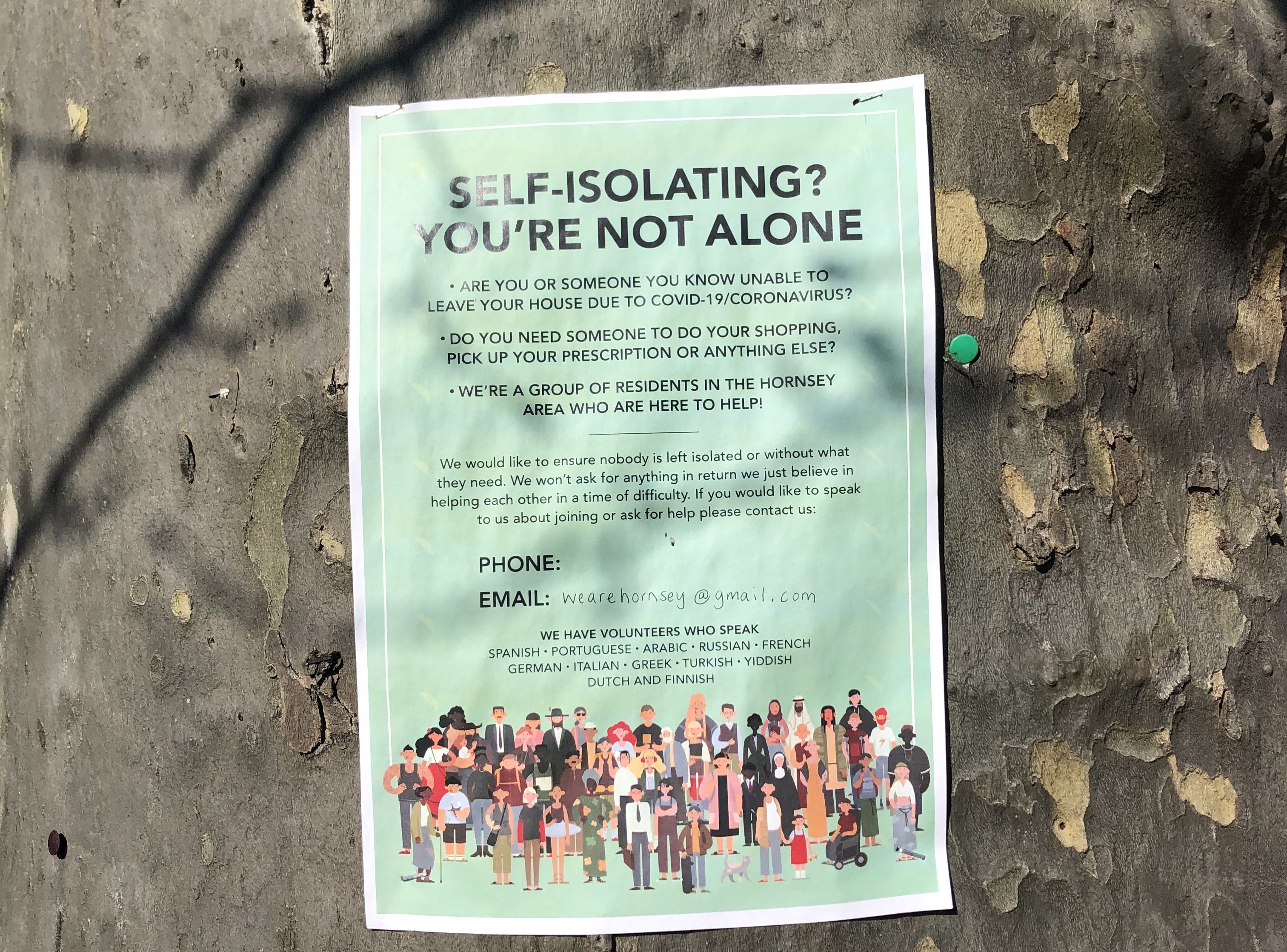 LSE’s Professor Shani Orgad discusses the darker side to an advertisement that promotes and glamourises the idea of women working on a ‘side hustle’ at the end of the traditional working day.
LSE’s Professor Shani Orgad discusses the darker side to an advertisement that promotes and glamourises the idea of women working on a ‘side hustle’ at the end of the traditional working day.
In the new Super Bowl commercial for the website builder Squarespace, Dolly Parton’s 1980s hit song ‘9 to 5’ is given a contemporary, if bitter, twist. When the office clock hits 5pm, the drab and exhausted workers suddenly come alive: dull suits are transformed into colourful workout gear and everyone begins a vibrant musical-style dance to the sound of the updated lyrics of Parton’s song:
Working 5 to 9… cuz it’s hustlin’ time
A whole new way to make a livin’… 5 to 9
You keep working working working.
While there are a number of men in the background, the ad is clearly celebrating ‘hustle culture’ for women. ‘You keep dreaming dreaming dreaming/ 5 to 9 / you can do it’, Parton’s voice exhorts the woman at the centre of the ad. Indeed, by the end of the ad, she realizes her dream of launching a fitness app.
Writing in the New York Times, gender and culture editor Jessica Bennett observes that the ad represents a discordant departure from Parton’s original hit and the 1978 comedy of the same name. Both, after all, were inspired by the American feminist organisation 9to5, which, during the 1970s, protested sexism in the workplace and fought for women’s equal pay.
But the Superbowl ad is neither about sexism nor equal pay. It is about embracing entrepreneurialism.
Of course, encouraging women to embrace entrepreneurialism and the gig economy are nothing new. They have their origins in the rise of Thatcherism and Reaganism, when entrepreneurialism became the ideal, heralding a shift away from traditional ‘jobs for life’ to more ‘flexible’ types of work. Women were cast as the perfect beneficiaries of this shift, especially in the context of the dismantling of social welfare and the state’s ongoing withdrawal of public support for childcare provision.
Mumpreneurs
The 1987 movie Baby Boom memorably celebrated women’s entrepreneurialism, featuring Diane Keaton as a New York senior management consultant J.C. Wiatt who rejects the frenzied culture of overwork in order to discover the joys of new motherhood. But rather than settling for being a stay-at-home mum, she launches a gourmet baby food business which soon becomes a huge success.
The figure of the ‘mumpreneur’ has since become extremely popular, particularly in the wake of the 2008 financial crisis and the ensuing recession. Today, numerous guide books, ‘momoirs’, dedicated websites, specialized conferences, and famous women like Body Shop founder Anita Roddick celebrate mumpreneurship. As City University’s Jo Littler observes, being a mumpreneur is presented as a solution to gendered inequalities in the workplace and to the soaring costs of childcare, all the while providing glamour and personal fulfilment.
The lockdown shift
What is particularly troubling about the ‘5to9’ ‘hustle anthem’ is that it has been produced and is being circulated in the midst of a devastating pandemic and global recession that disproportionately affect women and people of colour. What sociologist Arlie Hochschild famously called the ‘second shift’ has now become the constant shift, with women bearing the brunt of homeschooling, caring for their families and vulnerable relatives alongside the responsibility for cooking and cleaning.
In the past year, we have witnessed increased unemployment, the scaling back of paid work and serious loss of income for women, especially mothers. Women are currently at increased risk of domestic violence and have experienced greater anxiety and mental health concerns. Yet, against this dire backdrop, the Squarespace ad tells women to ‘keep working, working, working.’ A secure, albeit dull, job that ends at 5pm is now not enough. A second shift starting at 5pm – even if this time energising and full of passion –is what women are encouraged to pursue.
COVID-19’s transformation of the second shift into a constant shift, and women’s increased insecurity, exhaustion, precarity and anxiety are entirely absent from this celebration.
The Squarespace ad might appear to be just what women need at the moment. After all, it injects colour, hope and joy, encouraging women to ‘keep dreaming’. But as I found in my extensive study of women who left – often because they were forced out of – their jobs, the promise of the gig economy’s ‘side-hustles’ or becoming a mumpreneur is in fact, an insidious fantasy. It has considerable purchase on women’s imaginations and psyches: the women I interviewed often clung on to the fantasy of following their dreams and launching their own digital business, just like the woman in the ad. But they very rarely succeeded.
This is because the facile image of the successful self-employed entrepreneur promulgated by ads like this covers up the huge obstacles that stand in the way of creating — let alone maintaining — a successful business. And let’s not forget that we are in the middle of a global pandemic, when many people are simply trying to stay afloat.
Crucially, the gig economy side-hustle fantasy encourages women to believe that countering gender inequalities can be done easily, often simply by unleashing their desires, rather than challenging the structural inequalities in their workplace, homes and society. Yet this is precisely what the organization 9to5, as many other feminist organizations did in the 1970s, and continue to do today.
If Squarespace wants to lay claim to the legacy of Dolly Parton’s original song, it can start by encouraging men and women to build websites for collective feminist mobilization. And if our culture is to truly support women through this global crisis, let’s focus on demanding structural changes that will bring about long overdue equality, both at work and at home.
This article represents the views of the author and not the position of the Media@LSE blog, nor of the London School of Economics and Political Science. To learn more about the LSE Department of Media and Communication’s research, please sign up to our Media@LSE newsletter here.
Featured image: Photo by Charles Deluvio on Unsplash






Professor Shani Orgad paints a lucid picture of women who are at the forefront during this awful pandemic. Women, Professor Orgad demonstrates, who are struggling against a background of turmoil, noise and often consistent conflict. Women who are unfairly the unsung heroes daily battling in the confined spaces of locked-down Home.
It is crucially important to bring this conversation to the forefront . Professor Orgad asks how come we all accept such inequality and the “failed promise of equality” so unquestioningly.
It is contributions such as hers that will help us all build a more fair society.